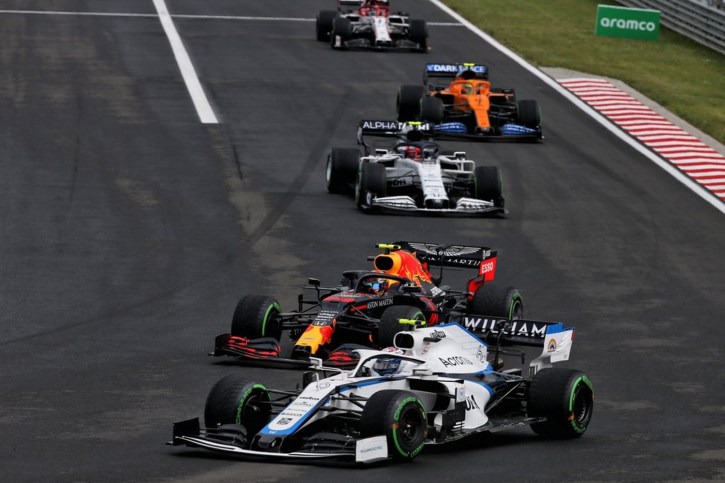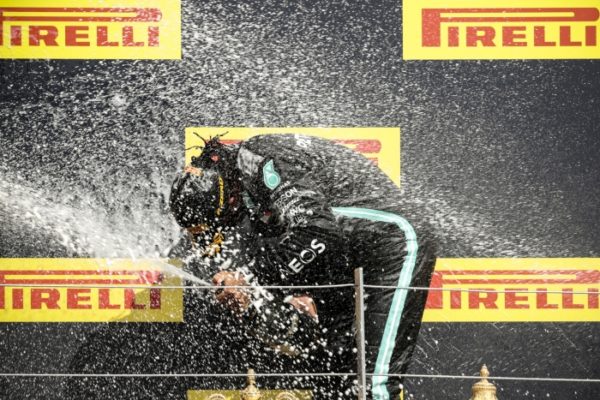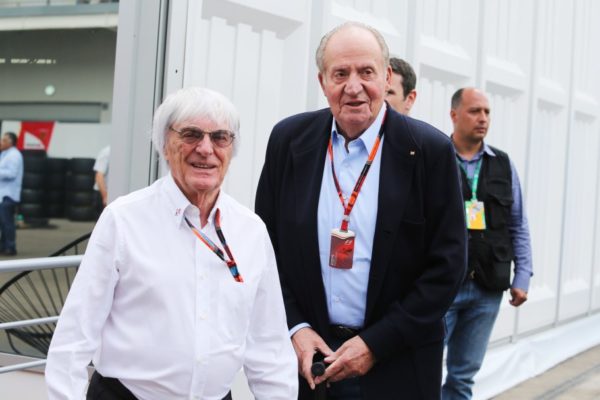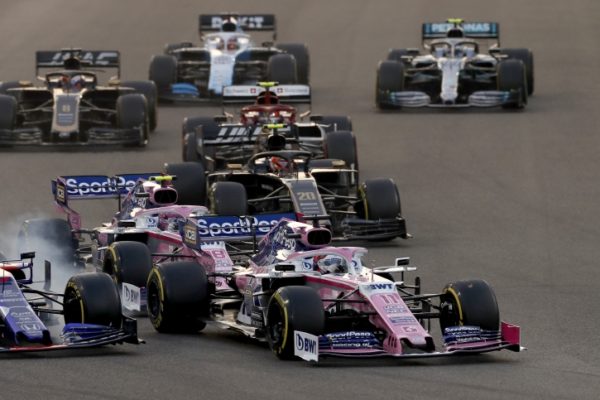On the morning of the 4th of January Renault issued a statement to the press detailing their worldwide sales progress during the 2005 year. In brief, worldwide sales are up by 1.7% to just over 2.53 million vehicles – a combination of quite a drop in European sales and a massive 21.1% international gain over 2004.
Much mention is made of the success of the Clio III launch and the fact that it was crowned the 2006 European car of the year. Mention is also made of the growth of Dacia, in particular the Logan, along with the fact that they are still on top of the LCV market with an overall share of 14.6%.
What is missing in all the above? Renault’s success in Formula 1 is what! Not in the entire five page statement do they make a single mention of the potential effect either the drivers or constructors titles may have had on Renault’s sales. Nor, in fact, is any mention made of the Formula 1-derived technology and how that may have boosted sales.
Not even when it is mentioned that sales of Renault increased by 2.7% in France, is any hint made that their title may have helped. Spain, the home country of the new Driver’s World Champion, saw a sales increase of 3.5% – surely helped by the well-publicised efforts of their newfound F1 hero but this does not justify a mention either.
Does Renault see any tangible benefit from their F1 efforts, and now successes, at all? Despite some advertising campaigns playing on the role of F1 technology in their road cars, it would seem as though Renault don’t really believe so. When Renault was pondering entering the F1 world again having dropped Williams after 1997, the top brass made it quite clear that some compelling reason would have to exist to give them a tangible advantage over their prospective competition and so the 111 degree V10 engine was born. An extremely low centre of gravity was but one of the compelling motivations for this engine to see the light of day and the Renault Formula 1 team was resurrected – the struggling Benetton team was purchased and experienced F1 team boss Flavio Briatore was lured back to the team he once managed. It was not long after this event that the first rumours of Renault’s imminent exit from the sport surfaced.
Reasons cited alternated between the problems experienced with Jean-Jacques His’ radical engine design and the unexpectedly high budget necessary to keep the team competitive. The engine was a great idea but such were the vibration problems experienced that it had to be down-tuned to unacceptably low levels of power delivery simply to last a race distance – some say by as much as 70 kW. This problem was emphatically resolved when Renault was basically forced to abandon their extreme engine idea by the 2004 “one engine per weekend” rule and go back to the tried and trusted 72 degree engine block that powered Williams to two consecutive driver’s and constructor’s world championships in ’96 and ’97. As for the annual investment, we actually have not heard a peep about this for some time. All these rumours, like so many in F1, turned out to be false year after year but they nonetheless set an undertone that the company was not in it for the long haul. Renault themselves then openly threatened to quit should manufacturers be forced to build what they termed “tractor engines” that would have to last for six races – these threats were made as far back as January 2003.
The undertone faded away in 2004 and 2005 as the team became increasingly successful and no more rumours surfaced for quite some time – except for one incident when Renault F1 President Patrick Faure told Eurosport magazine that his team was quitting F1 because of the “unacceptable” revenue sharing. He said Renault had passed a point of no return, and was determined to establish the GPWC. This threat, however, could actually be seen as a long-term commitment to the sport – just not in its current guise. This further dispelled any talk of Renault’s departure from the pinnacle of motor sport.
And then, suddenly and completely out of the blue, we hear that Alonso had signed on with McLaren as of 2007. Not long thereafter former Formula 1 driver and ten times race winner Gerhard Berger firmly predicts Renault’s imminent departure from the sport. Not long after again the annual Sales Progress Press Release remains completely mum on Renault’s recent victories in both World Championships of the pinnacle of motor sport.
Does Renault believe that now is the time to go? Will they subscribe to the “quit while you’re ahead” philosophy? It is not at all inconceivable that Renault could hold on to one or both the championships for another year at least – or more should they manage to obtain the services of another top driver. Flavio is an experienced team boss who is no stranger to the sport – or winning championships for that matter (remember Benetton?). Pat Symonds also has the credentials – so emphatically ratified recently – to produce a winning car. Of course the law of averages catches up with everyone before long and no team keeps winning forever. Already the bookies believe there are two drivers more likely than Alonso to take the championship this year and more than one high profile player in the sport believe that it will be either The Ice Man or Michael Schumacher that will be crowned F1 Drivers Champion come the end of the ’06 season. This opinion is seconded by the public in every online poll published so far.
So what will Renault decide to do? Attempt to prove that they can do this a couple of times in a row? Only twice even? Or does the company believe that it has nothing left to prove in the world of Formula 1? The last time they were this high up in the game (as an engine supplier only though) they stayed around for quite a while but the costs were not nearly what they are now. Renault promises to issue another press release detailing the way forward on February 9. Carlos Ghosn, the new CEO of Renault and the man who turned around the flailing motor manufacturer Nissan is certainly touted to make some changes. The company he now runs is losing market share in Europe and he knows full well that Renault’s current big sellers are not expensive enough models to turn a decent profit per car. He needs to increase profitability and the surest way to do that is cut costs. So, if Renault does not believe F1 is helping sales it could be the first program to face the axe. The engine program in Viry-Chatillon alone is believed to be costing the company some US$120 million per year. Kimio Kase, co writer of a book detailing Ghosn’s radical turnaround of Nissan recently expressed his predictions to the Bloomberg news agency: “”He’ll be logical, look to see if there is synergy between Formula 1 and Renault – which I don’t think there is.”
We wait for February 9…
Edu de Jager
DailyF1News.com
For all the columns by this author, click here



